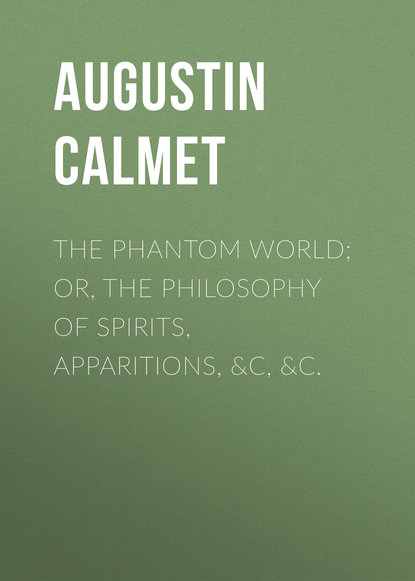По всем вопросам обращайтесь на: info@litportal.ru
(©) 2003-2024.
✖
The Phantom World; or, The philosophy of spirits, apparitions, &c, &c.
Настройки чтения
Размер шрифта
Высота строк
Поля
676
Inexpugnabili magicæ disciplinæ potestate, &c. – Lib. iii.
677
Delle magiche frodi seppe il Givoco. —Dante, Inf. c. 20.
678
Pp. 139 and 145.
679
P. 9.
680
P. 144.
681
Goësy, or Goësia, is said to be a kind of magic. It is asserted that those who profess it repair at night to the tombs, where they invoke the demon and evil genii by lamentations and complaints.
In regard to Theurgy, the ancients gave this name to that part of magic which is called white magic. The word Theurgy signifies the art of doing divine things, or such as God only can perform – the power of producing wonderful and supernatural effects by licit means, in invoking the aid of God and angels. Theurgy differs from natural magic, which is performed by the powers of nature; and from necromancy, which is operated only by the invocation of the demons.
682
P. 170.
683
P. 654.
684
P. 749.
685
P. 9.
686
P. 30, de Lam.
687
P. 94.
688
What is enclosed between the brackets is a long addition sent by the author to the printer whilst they were working at a second edition of his letter.
689
Et vidi angelum descendentem de cœlo habentem clavem abyssi et catenam magnam in manu suà; et appehendit draconem, serpentem, antiquum, qui est Diabolus et Satanas, et ligavit eum per annos mille. —Apoc. xx. 1.
690
Et cum consummati fuerint mille anni, solvetur Satanas de carcere suo. —Apoc. v. 7.
691
Cujus est adventus secundùm operationem Satanæ in omni virtute et signis et prodigiis mendacibus. – 2 Thess. ii. 9.
692
Joseph. Antiq. lib. viii. c. 2.
693
Acts viii. 6.
694
Mittet siquidem Dominus in iram et furorem suum per angelos pessimos. Hier. ad Eph. i. 7. p. 574.
695
Vid. de Beatif. lib. iv. p. i. c. 3.
696
Pp. 67, 75.
697
P. 243.
698
Lib. ii. p. 364.
699
In pecunia divinabunt. – Mich. iii. 11.
700





